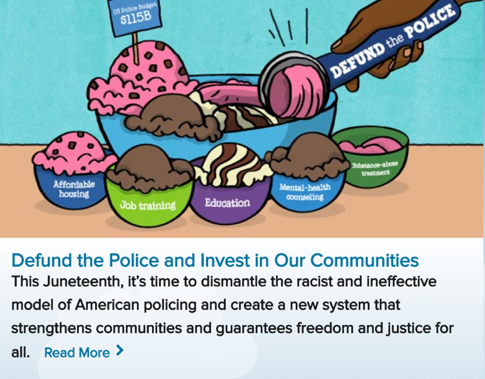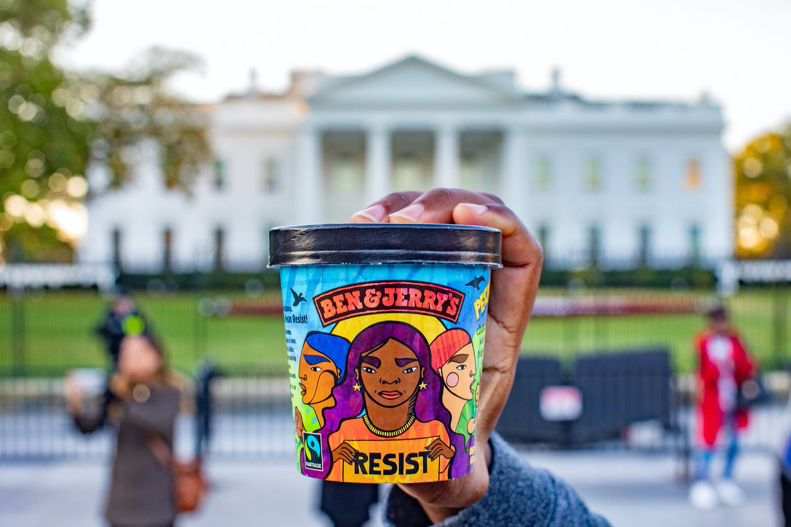Superficial courage in leadership can occasionally lead to overreach, and in my experience the ability to manage risk is prized more highly as the stakes rise. Deep courage is far harder to come by, but has never been more necessary, particularly to combat systemic racism and the many risks associated with it.
Blackrock Chief Executive Larry Fink issued a statement yesterday laying out the actions his company is taking to build a better, fairer society. But it didn’t include divesting from for-profit prisons or immigration detention centers. As a colleague said, “they’re famous for making big statements.” Can they back them up with substantive actions? How courageous is Blackrock, really? On the same day, a black-owned investment firm sued the New Jersey State Pension fund, alleging that Blackrock was brought in to usurp its $170m portfolio—a claim Blackrock denies.
Leaders are looking around at the likes of Ben & Jerry’s, right now, and wondering if they should go all-in on this “dismantle white supremacy” thing. Here’s the homepage of the ice cream company’s website last Friday:

Is that something you can imagine doing?
Over the last couple of weeks, I’ve had some success writing and placing measured op-eds in newspapers that are read by decision-makers on my clients’ anti-racist causes. They’ve won meaningful progress, and we’ve built trust. I love the ideation phase of these discussions. There can be an abundance of superficial courage in our creative brainstorming. The other day, for example, I said: “Let’s inflate a huge skunk on the stock exchange with the slogan, ‘Raci$m $tinks!’” Then we moved very quickly to asking: “Who’s deciding on this, when, and what specific media outlet do they read, and respect?” And the ideas evolved. Much as it pains me, the inflatable skunk idea remains on the shelf for the time being.
Ben & Jerry’s has been allying itself with progressive causes since two white hippies founded the company the year before I was born. The Wall Street Journal has done good reporting on it: Some of the brownies mixed into their ice cream are baked by people who were once incarcerated, at Grayston Bakery in Yonkers, N.Y., which runs a no-background-check hiring procedure, breaking the cycle of incarceration. But Ben & Jerry’s is now owned by Unilever, a $150bn global company that has urged its brands, perhaps rightly, to be wary of “opportunistic” responses to recent tragedies. Ben & Jerry’s still runs background checks on staff in its factories, and can only suggest a living wage of $18 an hour to franchisees. Its chief exec told the Journal, “equity is not a destination”, but a “process.” And I imagine it’s not the defining factor in his annual performance review, either.
We’re all starting at various points on anti-racism, and we all need to get better. But right now, the question I’m hearing most often is: What can I really say, today, without being merely superficially courageous? My clients’ time is limited and right now, many of us are feeling paralyzed about how to communicate. Yet we know we want to say something and better yet, do something. I’m reflecting often on the depth of my courage, at the same time as managing risk in my day to day communications. How about you?
I’m still finding my feet as a consultant and my humble business only really grows as a result of sincere word-of-mouth referrals. Apart from commissioning me to help you with some work, you can do me no bigger favor than to sing my praises to your colleagues.

